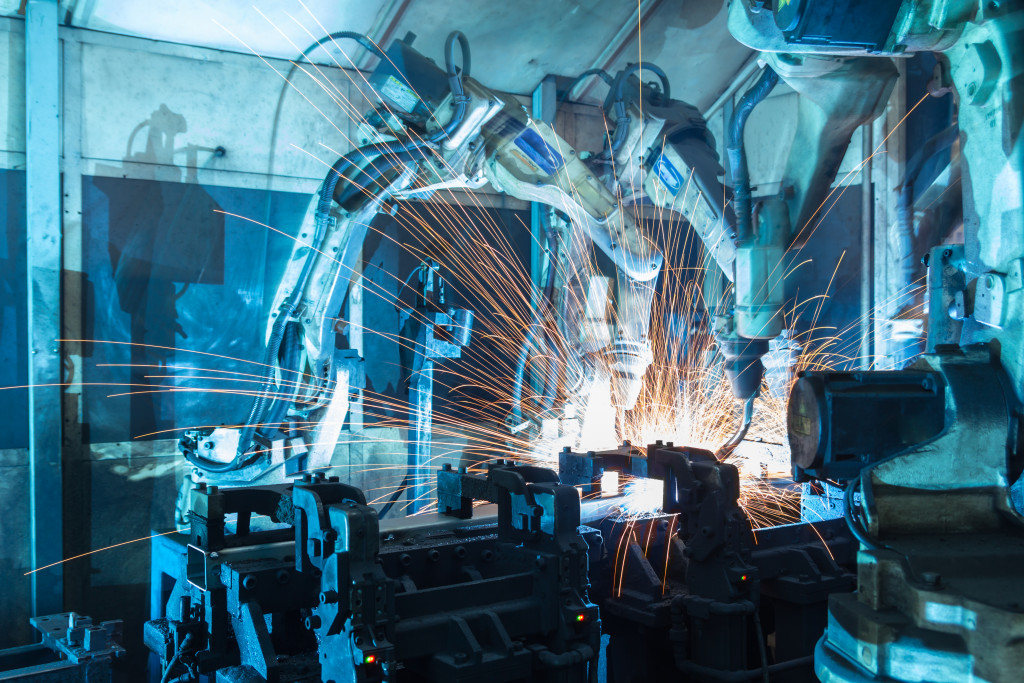- Automation is a key technology to increase productivity and quality of life.
- Manufacturing can benefit from automation with lower labor costs, better safety, and less waste.
- Retailers can take advantage of automated inventory management systems and better customer service.
- The financial services industry uses AI, RPA, and other automation technologies to automate decision-making processes and administrative tasks.
- Automation can provide a competitive edge over organizations that don’t utilize it.
Productivity is a critical measure of economic success, as it is the foundation for creating enduring enhancements in the quality of life. By increasing productivity, people can ensure that living standards will continually improve over time. And one of the most essential technologies to use for increasing productivity is automation.
Automation is becoming increasingly prevalent in many industries, with businesses and entrepreneurs recognizing the potential benefits associated with its implementation. Automation can increase efficiency, reduce costs, and free up resources that can be better used elsewhere. Here’s a look at how automation is used in different industries.

Manufacturing Industry
The manufacturing industry is one of the sectors that has seen the most significant gains from automation. Traditionally, it was labor-intensive and complex processes were required to create finished products. However, automated systems have significantly reduced both cost and complexity.
Lower Labor Costs and Better Safety
Automated systems are programmed to respond to specific instructions and carry out multiple tasks simultaneously with minimal human input. This means that labor costs can be significantly reduced and production time frames accelerated. The increasing use of motion control sensors in different industries can also reduce errors since the equipment does not rely mainly on human intervention. The industries that use these sensors include printing, textile, and assembly.
Lesser Waste
Another benefit of automation for this sector is less wastage as materials are used according to precise, pre-programmed specifications. Automated systems also offer the capability to monitor and control processes to the finest detail, allowing for greater precision in the finished product.
Improved Communication
In addition to reducing costs and waste, automation helps to facilitate better communication between manufacturing processes, customers, and suppliers. Automation can streamline operations by collecting data and providing accurate analysis of production processes, which can then be used to identify areas of improvement.
Retail Industry
Automation has revolutionized the retail industry in recent years by enabling retailers to streamline their processes and improve customer satisfaction levels. For example, automated inventory management systems allow retailers to track stock levels more accurately and adjust ordering accordingly. This reduces overstocking or running out of stock issues, meaning customers receive consistent service regardless of demand levels or seasonal fluctuations.
Shorter Waiting Time
Additionally, automated checkout systems mean shorter waiting times for customers at checkout points and improved security measures such as facial recognition technology for fraud prevention. Automation has also been instrumental in developing digital marketing campaigns, enabling retailers to track customer data more effectively and personalize their customers’ experiences.
Personalized Experience
Automation-driven analytics allow retailers to make proactive decisions based on customer behavior, providing a more personalized shopping experience. This ultimately leads to increased customer loyalty and better engagement rates with prospective buyers.
Better Customer Service
Finally, automation has enabled retailers to improve their customer service levels. They use features such as chatbots, which can provide real-time support and answer frequently asked questions quickly. This reduces the burden on customer service staff while improving customer satisfaction by providing efficient support.

Financial Services Industry
The financial services industry has also seen major improvements thanks to automation technologies such as artificial intelligence (AI) and robotic process automation (RPA). AI algorithms help automate decision-making processes by analyzing large quantities of data quickly and accurately. The situation allows decisions to be made faster than ever before while considering all relevant factors.
Automate Administrative Tasks
RPA allows financial institutions to automate tedious administrative tasks, such as data entry. The situation frees up resources to focus on providing better customer service or developing new products/services. Additionally, automation technologies can be used to improve compliance with regulations by providing real-time monitoring of transactions.
At the same time, AI continues to become more advanced and sophisticated. It provides personalized services such as automated investment advice or personalized insurance recommendations. Automation enables banks and other financial institutions to offer new customer experiences such as virtual assistants, chatbots, or voice-enabled banking services.
These technologies can streamline the customer experience, improve customer service levels, and reduce costs for financial institutions. In short, automation is having a significant impact on financial services.
Automation is becoming an integral part of many industries because it can streamline processes, reduce costs, increase efficiency, and free up resources for more productive activities such as customer service or product development/innovation. Businesses that embrace automation will have a competitive edge over those that don’t utilize it. After all, why wouldn’t you want access to cutting-edge technologies designed specifically for your sector? Business owners and entrepreneurs should consider implementing automation to remain competitive in today’s rapidly changing world.




